Green Value Symposium:
Information
Biotechnology and green biomass for innovation, circular economy and mitigation of climate change
The Green Value symposium aims to bring together outstanding national and international speakers, including Nobel Laureate Sir Richard J Roberts, to discuss developments in biotechnology (e.g. GMOs, CRISPR genome editing) and the sustainable utilization of green biomass for innovation and development of valuable bioproducts contributing to the circular economy as well as to the reduction of the environmental footprint. NIBIO has had 15 years of successful collaboration with China in plant health, environmental research, climate change and biotechnology, and this Green Value Symposium shall contribute to further strengthen and widen NIBIO-China collaboration in biotechnologies, bioeconomy and waste recycling for the circular economy by inviting several leading Chinese scientists to the event to share their knowledge and experience.
The registration deadline has expired. If you would like to participate please contact ellen.pongo@nibio.no
Green Value Symposium: Biotechnology and green biomass for innovation, circular economy and mitigation of climate change
Information
This activity has ended, and it is no longer possible to register.
Green Value conference with five sessions:
- Opening
- Global landscape for GMOs: potentials, challenges and regulations
- CRISPR genome editing- the global status and China particularly
- Green value showcases and industrial success
- Panel debate: How can biotechnology contribute to the circular economy and the reduction of GHG emissions?
-
09:00-09:30
Registration and coffee
-
09:30-10:00
Green Value conference opening
Chair: Director General of NIBIO, Nils Vagstad
-
09:30-09:40
Welcome speech
Director General of NIBIO, Nils Vagstad
-
09:40-09:50
Opening speech, bioeconomy and circular economy in China
Ambassador Mr Yi Xianliang
The Embassy of the People’s Republic of China in Norway -
09:50-10:00
Norwegian governmental strategy for bioeconomy and circular economy
Knut Berdal, Senior science and technology adviser, Norwegian Ministry of Agriculture and Food
-
10:00-12:00
Global landscape for GMOs: potentials, challenges and regulations
Chair: Senior adviser and CHINOR team leader, Research Council of Norway, Thomas Hansteen
-
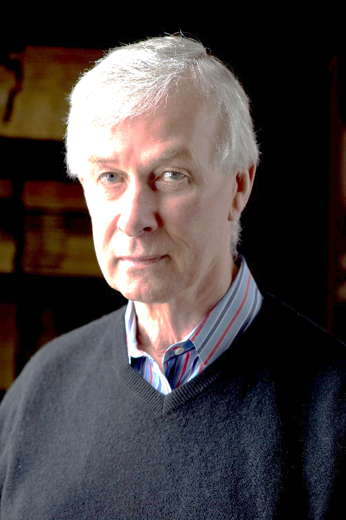 10:00-10:30
10:00-10:30The Nobel Laureates’ campaign in favor of GMOs
Dr. Richard J. Roberts
Dr. Richard J. Roberts is the Chief Scientific Officer at New England Biolabs, Beverly, Massachusetts. He received a Ph.D. in Organic Chemistry in 1968 from Sheffield University and then moved as a postdoctoral fellow to Harvard. From 1972 to 1992, he worked at Cold Spring Harbor Laboratory, eventually becoming Assistant Director for Research under Dr. J.D. Watson. He began work on the newly discovered Type II restriction enzymes in 1972 and these enzymes have been a major research theme. Studies of transcription in Adenovirus-2 led to the discovery of split genes and mRNA splicing in 1977, for which he received the Nobel Prize in Medicine in 1993. During the sequencing of the Adenovirus-2 genome computational tools became essential and his laboratory pioneered the application of computers in this area. DNA methyltransferases, as components of restriction-modification systems are also of active interest and the first crystal structures for the HhaI methyltransferase led to the discovery of base flipping. He was a leader in the COMBREX project that aims to connect computational biologists with experimental biochemists to find the function of novel genes. Bioinformatic studies of microbial genomes to find new restriction systems remain a major research focus as is the elucidation of DNA methyltransferase recognition sequences using SMRT sequencing. The latter is revealing that bacteria are far more sophisticated in their use of DNA methylation than had previously been suspected.
-
 10:30-11:00
10:30-11:00The Norwegian regulation of GMOs: the past, the present and the future
Director Ole Johan Borge
Ole Johan Borge is the director of The Norwegian Biotechnology Advisory Board. Borge is an agronomist, holds a master's degree in biotechnology from the University of Oslo and a Ph.D. degree from the University of Lund, Sweden. Borge has previously worked as a department head at Innovation Norway with focus on the areas of health and ICT.
-
 11:00-11:30
11:00-11:30Protein and enzyme products made in chloroplasts for daily use or clinical applications
W.D. Miller, Professor, University of Pennsylvania School of Dental Medicine, Editor in Chief of Plant Biotechnology Journal, and CEO of PhylloZyme, Henry Daniell
Dr. Henry Daniell - W.D. Miller Professor at the University of Pennsylvania School of Dental Medicine, is a Fellow of the American Association for the Advancement of Science and a foreign member of the National Academy of Sciences, Italy, Editor in Chief of the Plant Biotechnology Journal, Oxford, UK and Technology Founder of PhylloZyme that launched the first leaf-based enzymes for textile, detergent, food/feed applications. He is the recipient of several awards including the American Diabetes Association Award, American Heart Association, Bayer Hemophilia global award and Bill and Melinda Gates Foundation Award for outstanding contributions to lower the cost of biopharmaceuticals. He pioneered chloroplast genetic engineering concept to produce and orally deliver biopharmaceuticals to treat major metabolic or genetic disorders, including Alzheimer’s, diabetes, hypertension, hemophilia and retinopathy. Booster vaccines are developed in chloroplasts to prevent global infectious diseases like tuberculosis, malaria, cholera, polio and biological threats, such as anthrax and plague. Studies with FDA and CDC funded by the Gates Foundation, NIH SMARTT program or major pharmaceutical companies help to advance these inventions to the clinic. For more details visit Google Scholar: http://scholar.google.com/citations?user=7sow4jwAAAAJ&hl=en
-
 11:30-12:00
11:30-12:00Responsible Research and Innovation (RRI)
Professor Bjørn Myskja, Norwegian University of Science and Technology (NTNU), Norway
Bjørn Kåre Myskja is Professor of Ethics and Political Philosophy at the Department of Philosophy and Religious Studies and Vice Dean of Research at the Faculty of Humanities, the Norwegian University of Science and Technology – NTNU, Trondheim, Norway.
The last twenty years he has mainly done research in applied ethics, in particular in bioethics and the ethics of biotechnology in agri-and aquaculture. His main research interests here include issues of trust and the relationship between experts and lay people, as well as the ethical foundation for the regulation of novel technologies. He is or has been leading several interdisciplinary research project within these research areas, including one on the ethics of gene editing of salmon for aquaculture, recently funded by the Research Council of Norway. He is also currently in charge of the work package on the responsible research and innovation (RRI) aspect of several projects within biotechnology and bioeconomy. -
12:00-13:00
Lunch
-
13:00-14:30
CRISPR genome editing- the global status, China particularly
Chair: University of Pennsylvania, Professor Henry Daniell
-
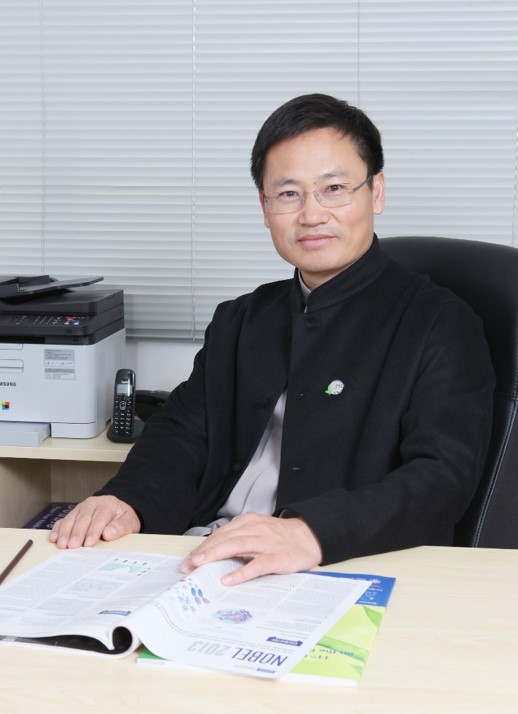 13:00-13:30
13:00-13:30Gene editing technologies for precision molecular breeding of crops
Professor Jian-Kang Zhu, Director of the Shanghai Center for Plant Stress Biology, Chinese Academy of Sciences, China, Distinguished Professor of Plant Biology, Purdue University, USA
Distinguished Professor of Plant Biology, director of Shanghai Center for Plant Stress Biology, Chinese Academy of Sciences. Dr. Zhu earned his bachelor's degree in soils and agricultural chemistry from Beijing Agricultural University; his master's degree in botany from the University of California, Riverside, and his doctorate in plant physiology from Purdue. Dr. Zhu is internationally renowned for his creative and path-breaking research that has sought to elucidate the signaling pathways in plants that govern their responses to environmental stresses. His research has contributed fundamentally to current understanding of the molecular-genetic mechanisms underlying salinity tolerance, drought tolerance, and low temperature stress in plants. Dr. Zhu’s laboratory has been central in the effort to identify key genes that could be manipulated to modify crop responses to abiotic stresses, with the ultimate goals of both enhanced agriculture productivity and decreased degradation of the environment.
-
 13:30-13:50
13:30-13:50Gene editing used to study the light harvesting complex of marine algae
Professor Atle M Bones, Department of Biology, Norwegian University of Science and Technology (NTNU), Norway
Atle M. Bones is professor at Department of Biology, Norwegian University of Science and Technology [NTNU], Trondheim, Norway. He has a BSc in engineering and construction and continued with mathematics and biology at University of Trondheim [AVH]. His MSc and PhD were directed against molecular and cellular organization of plant defence systems. Bones has been running the plant biotechnology company ScanPlant and the start-up BioKit. He was part of a three-person group establishing UNIGEN a centre for molecular biology and acted as the group leader for the plant genetics group 1988-2000. He became associate professor in 1992 and full professor of cell and molecular biology in 1995 at Department of Biology, NTNU. Bones was the head of the national Biology Transcriptional Analysis Centre 2002-2014. From 2000 he has been heading the Cell, Molecular biology and Genomics Group at NTNU and act as section leader. His research group study host- response mechanisms to environmental factors and the molecular and cellular organization of plant and alga host defence systems.
-
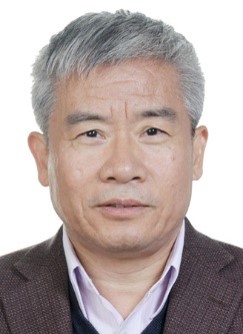 13:50-14:10
13:50-14:10Genome-directed CRISPR-mutated mutant library development for cotton functional genomics
Distinguished Professor and Deputy Director of National Key Lab for Crop Genetic Improvement, Huazhong Agricultural University, China, Xianlong Zhang
Xianlong Zhang is a distinguished professor in Crop Science. He took the vice president position from 2008 to 2018 at Huazhong Agricultural University, and is the associate director of National Key Lab for Crop Genetic Improvement since 2002. He was continuously educated in HAU from 1980 to 1990 and earned his Ph.D. in 1990 from HAU and then he became a faculty member of HAU. Dr. Zhang worked in plant genetics and improvement for thirty years, his research involves in plant tissue culture, cell development, biotic and abiotic tress tolerance and genomics. Dr. Zhang’s Lab released the reference genomes of the two cultivated cotton species, Gossypium hirsutum and G. barbadense, and found the two subgenomes in cotton showed asymmetric selection. He is leading a cotton research group which is known for the international cotton community. Dr. Zhang published 160 papers in the international journals and released 14 varieties for commercial use. He is now developing mutant library by CRISPR, in which more than 1000 transcription factors will be knocked out, and the final goal is to find the key factors or regulation network controlling fiber development and quality.
-
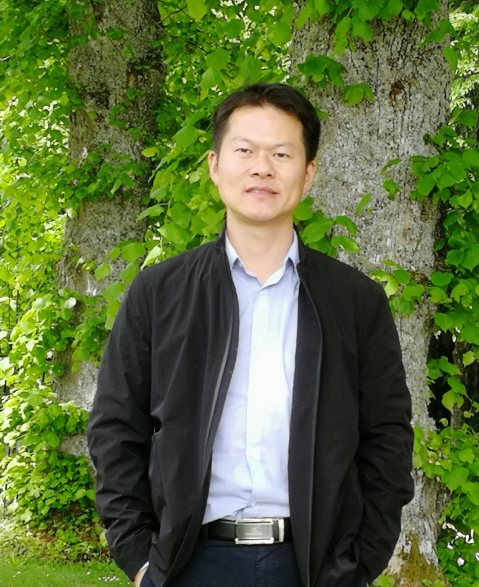 14:10-14:30
14:10-14:30CRISPR genome editing in cotton: current progress and future perspectives
Professor, National Key Lab for Crop Genetic Improvement, Huazhong Agricultural University, China, Shuangxia Jin
Dr. Shuangxia Jin is a full professor of Huazhong Agricultural University (HZAU), China. He received his Ph.D. in 2006 from HZAU. From 2007 to 2012, he has been working as a postdoc in Prof Henry Daniell's lab of University of Pennsylvania of USA focusing on the tobacco and lettuce chloroplast transformation. In 2012, he moved back to China and worked as PI in the National Key Laboratory of Crop Genetic Improvement of HAZU.
Dr. Jin have been working in plant biotechnology field for 20 years, his current research involves in molecular interaction between insects (whitefly/aphid/Lygus) and cotton host, cotton genome editing (CRISPR-Cas 9, Cpf1, C2c1 and Base-editing). Dr. Jin has published more than 50 peer reviewed papers in top journals such as Trends in Plant Science, Plant Physiology, New Phytologist, Plant Biotechnology Journal. He is the Associate Editor of Plant Biotechnology Journal and Senior Editor of Journal of Cotton Research. He was selected as the co-chair of International Cotton Genome Initiative (ICGI) in 2017.
-
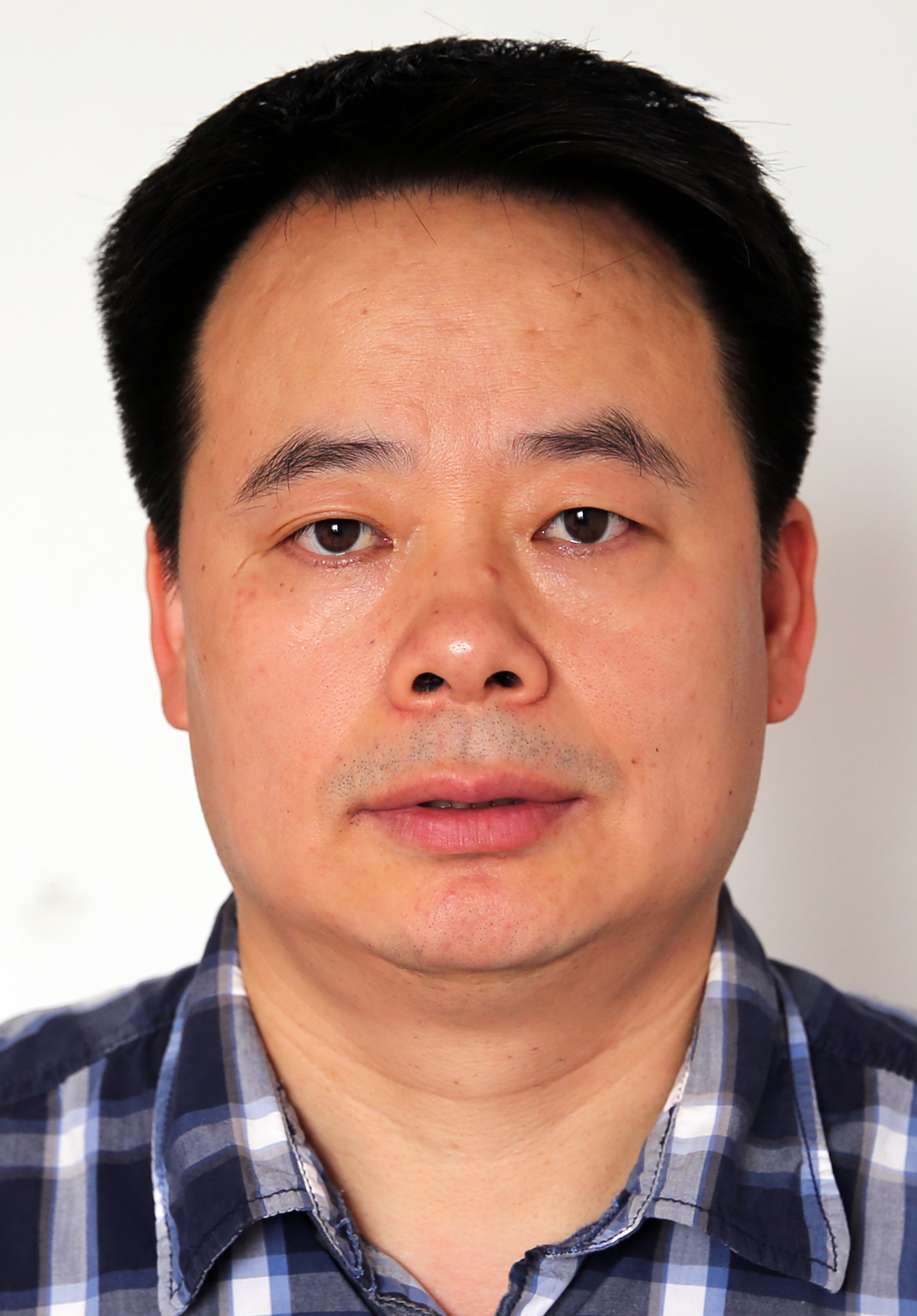 14.30 - 14.40
14.30 - 14.40Reconstructing nutrient recycling systems for China’s sustainable agriculture
Dr. Chaoqing Yu
Dr. Chaoqing Yu is a Ph.D from geography at the Pennsylvania State University, an associate professor at Tsinghua University, and a research scientist at the Tsinghua Cross-strait Research Institute. He is interested in water and agricultural sustainability based on broad scale modeling of crop growth and biogeochemical processes of nutrient cycling. His research team has built a global modeling system to simulate the daily growth and predict yields of the major grain crops with a spatial resolution of 0.5°.
Agriculture in China’s traditional system has been recognized as an example of sustainable agro-ecosystems without pollution for thousands of years due to nutrient recycling (Ellis and Wang 1997), but become a major pollution sources in the past 40 years. Dr. Yu and his colleagues have used a combination of water-quality observations and simulated nitrogen discharge to China’s water bodies during 1955-2014. They found that the current wastewater treatment system cannot resolve the nitrogen problem from the massive population in China. Improving nitrogen management in cropland can only potentially reduce the excessive nitrogen discharge by 25%. Meeting the water quality standard and the food demands needs improvement of nitrogen use efficiency, and requires China to increase the national nutrient-recycling rates from the current 36% to 86–88%. Circular economy should be able to play a central role for reconstruction nutrient recycling systems in China.
-
14:40-14:45
Coffee break
-
14:45-16:00
Green value showcases and industrial success
Chair: Director of Biotechnology and Plant Health Division, Arne Hermansen
-
 14:45-15:15
14:45-15:15Is there any limit to what we can make out of wood?
Technology Director, Department of Business Development, Borregaard, Norway, Gudbrand Rødsrud
Gudbrand Rødsrud is Technology Director at Borregaard, one of the leading biorefineries globally. Rødsrud leads many long term biorefinery projects aiming at production of high value products out of all parts of the biomass. He has more than 20 years of experience in several positions at Borregaard, including 11 years as global R&D Director for the lignin operation. Rødsrud also has been invited as a bioeconomy specialist for consulting authorities both in Norway and EU.
-
15:15-15:45
- Biochar derived from forest biomass
Research Professor, NIBIO Daniel Rasse - Biogas and biofertilizers made from waste recycling
Research prof, NIBIO Roar Linjordet - Bioboost Norway-China and EU-China H2020 SiEuGreen projects
Research Professor, NIBIO Jihong Liu Clarke - BioMiM
Research Professor, NIBIO Gry Alfredsen
- Biochar derived from forest biomass
-
15:45-16:00
Protein glycosylation and Norwegian core facility for post translational modification
University of Oslo, Dr. Anders Moen
-
16:00-17:00
Panel debate: How can biotechnology contribute to the circular economy and the reduction of GHG emission?
Leader: Prof. Bjørn Myskja, NTNU
Panel members: Richard J Roberts, Ole Johan Borge, Henry Daniell, Jian-Kang Zhu, Anne Ingeborg Myhr (Director of GenØk – Centre for Biosafety)
Dr. Anne Ingeborg Myhr is the director at GenØk – Centre for Biosafety in Tromsø. She is a molecular biologist with training in applied ethics. Myhrs main research experience is within risk assessment of GMOs, and on ethical, social and legal aspects (ELSA) related to genetic engineering including synthetic biology and nanobiotechnology. She has been a project leader for several projects within this area focusing especially on how to deal with risk and scientific uncertainty, and on how to promote sustainable and robust technology innovations.
-
17:00
Wrap-up
-
17:10
Symposium ends
